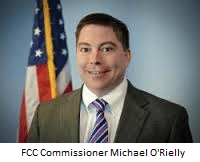
“While sound telecom policy provisions that promote infrastructure buildout could make sense, I would argue that policymakers should be leery of new communications infrastructure spending, as the last thing consumers or businesses need is an encore of the market distortions caused by the last federal government economic stimulus efforts,” he writes in a blog post. “For the sake of efficiency and soundness, if new government money has to be included for broadband, it should be done in a way that does not harm competition in the marketplace, prevents bureaucrats from picking winners and losers, is technology agnostic, distributes resources in an effective and efficient manner, and does not undermine the FCC’s universal service high-cost program.”
Using 2015 data, 90 percent of Americans have broadband access at speeds of 25 Mbps or better, and that rate is even better now, he argues. “That doesn’t mean we should rest on our laurels, but it does mean that we should salute the work already done by private broadband companies and address any barriers preventing more extensive deployments, including reducing regulatory burdens.”
But it also means the nation should redouble efforts to build out to areas without service or lacking sufficient service today through market-based mechanisms. “Sadly, I have visited parts of America that are without any option for broadband service,” notes O’Rielly. Getting to work on the FCC’s Remote Areas Fund, which he’s promoted for three years, is a good first step, he believes.
Unfortunately, he says, many broadband programs are fiber first or fiber only and include preferences to ensure other technologies do not win funding. “Dragging fiber to the top of every mountain may not make any sense in terms of cost, time to build, safety of installers and long term survivability against the surrounding elements. Alternatively, fixed wireless broadband or satellite may be the most appropriate solution,” according to the commissioner.
O’Rielly was recently named chairman of the Federal-State Joint Board on Universal Service, the Federal-State Joint Board on Jurisdictional Separations and the Federal-State Joint Conference on Advanced Services.
February 6, 2017




Reader Interactions